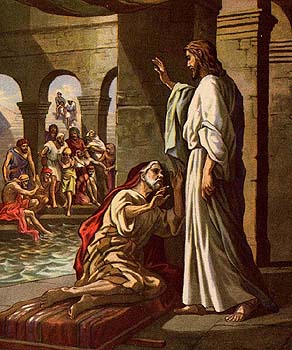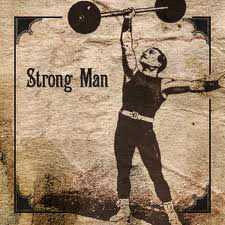 When God came to strip away my sin, I was glad. Sin only ended up making me miserable, and in the end, I was a slave to it. He freed me.
When God came to strip away my selfishness, I reluctantly agreed. I knew it wasn’t a good thing. Focusing on other people is what I’m supposed to do. But this wasn’t fun. It wasn’t as enjoyable as being freed from sin.
When God came to strip away my sin, I was glad. Sin only ended up making me miserable, and in the end, I was a slave to it. He freed me.
When God came to strip away my selfishness, I reluctantly agreed. I knew it wasn’t a good thing. Focusing on other people is what I’m supposed to do. But this wasn’t fun. It wasn’t as enjoyable as being freed from sin.
When God came to strip away the plans I had made for my own future, I wanted nothing to do with it. I had cobbled together my own hopes and dreams. I had looked at all my possible paths and decided on the ones that would be most fulfilling to me.
God was no longer taking bad things away from me, but good things. Things I wanted, not things I wanted to be rid of.
But this is the way of the cross. God is not a cosmic garbage can, where we only toss the things that we don’t want.
We have been called to surrender everything to him. So that he may remove from us whatever he deems necessary for reasons that may often remain his own (at least initially).
The way of the cross is the opposite of ‘what’s in it for me?’ Rather, it’s ‘what is asked of me?’
This is where I’m trying to incorporate ‘The Path Proverbs’
Proverbs 14:12 There is a path before each person that seems right, but it ends in death.
Proverbs 3:5-6 Trust in the LORD with all your heart; do not depend on your own understanding. Seek his will in all you do, and he will show you which path to take.
If I set out to navigate this life based on what I can see, it’s not going to end up where I want. Remember those puzzles in kids books where you have to trace a line as it twists and turns among other lines, almost like a pile of spaghetti? I think life is a lot like that. But this one is so complex and convoluted, only God actually knows which start point gets to which finish.
As I feel like God has been sending me in a different direction that what I would have chosen for myself, I am choosing to trust in him. I trust that if he has me on my current path, it is to keep me away from ending in disaster or disappointment.
I don’t think hopes and dreams and a vision are inherently bad things; I only think they are if they get placed above trusting the Lord and following his lead.
God is the potter I am the clay. How can I get upset about how he is molding me when I don’t know how he will use me? If I think I’m going to be a planter, a handle would be silly. But perhaps God knows I will be a pitcher, and he therefore knows I need a handle.
The way of the cross doesn’t stop at God removing the bad stuff from our life. It only begins there. The way of the cross comes in accepting that God’s will for our life is going to encompass all of who we are. Not just our ‘spiritual life’, but our whole life. Mind, body, spirit, soul, finances, time, focus, etc.
Jesus gives us this example in the garden of Gethsemane - “My Father! If it is possible, let this cup of suffering be taken away from me. Yet I want your will to be done, not mine.” (Matthew 26:39)
He was giving up his life then and there so that he could lay down his life in the hours to follow. It was an extraordinary life, lived in complete and total service to God. Jesus deserved accolades and adoration, not torture and murder. But God’s path led him through Golgotha.
But it didn’t end at Golgotha. It ended in eternal life. Not just for him; but also for you and me. It led to the defeat of sin and death.
From his human perspective, Jesus wanted nothing to do with the path God was leading him on. But in his obedience to God, he followed it and in the end God had led him on the path of life.
Jesus followed the way of the cross. The way of humility. The way of downward mobility.
He calls us to do the same.










